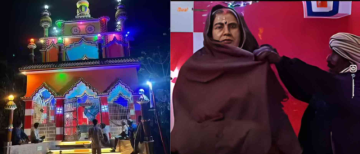The sanctity of news is under assault, as traditional channels increasingly turn to cheap thrills and reality TV-style theatrics in a desperate bid to reclaim their shrinking audiences. Facing stiff competition from social media platforms like YouTube, where fresh, engaging content is readily available, news channels are plummeting to new lows. What was once a bastion of responsible reporting has devolved into a spectacle of staged clashes and manufactured drama, all in the name of relevance.
In their quest for ratings, many of these outlets have transformed into propaganda machines, pushing divisive narratives and fuelling fake outrage. The result? A generation raised on hate-filled rhetoric and fake news, robbed of the opportunity to engage with thoughtful, ethical journalism. The staged conflicts between guests, the over-the-top sensationalism—these are symptoms of a media industry that has lost its way.

However, this strategy is unsustainable. As traditional news outlets spiral deeper into this abyss, newer online platforms are rising to fill the void. These platforms, many of which still uphold journalistic ethics, are not only faster in delivering news but do so in a way that resonates with a generation craving authenticity. They offer what the old guard has lost—credibility, truth, and the ability to connect with an audience that values substance over spectacle. In this rapidly changing media landscape, it’s clear that the days of manufactured outrage may be numbered, as the new generation gravitates toward sources that offer real information over scripted chaos.

TimesNow Navbharat Fiasco Should Shame Us All
A shouty debate on Times Now Navbharat took an unexpected turn when a discussion about Delhi Chief Minister Arvind Kejriwal’s bail in the money laundering case escalated into a personal spat between panelists Ashutosh and Anand Ranganathan. The exchange, which quickly went viral on social media platform X (Formerly Twitter), saw both panelists hurling verbal attacks at each other during a live broadcast. However, the studio audience seems nonchalant, as if all this loss of grace was expected. I’m not saying all this was staged to gain traction in social media and get focus on a dying form of media, but if I was in that audience, I would at least be concerned, but those people seemed more calm than a monk who has achieved zen.
Anyways, moving on. The discussion was initially centred around Kejriwal’s recent bail from the Supreme Court in the excise policy case. However, it veered into an unrelated topic when the panel began discussing the politics surrounding Prime Minister Narendra Modi's visit to Chief Justice D.Y. Chandrachud's residence during the Ganesh festival. Tensions rose when Anand Ranganathan challenged Ashutosh’s comment about his freedom as a journalist to go anywhere he pleased, arguing that the same principle should apply to everyone.
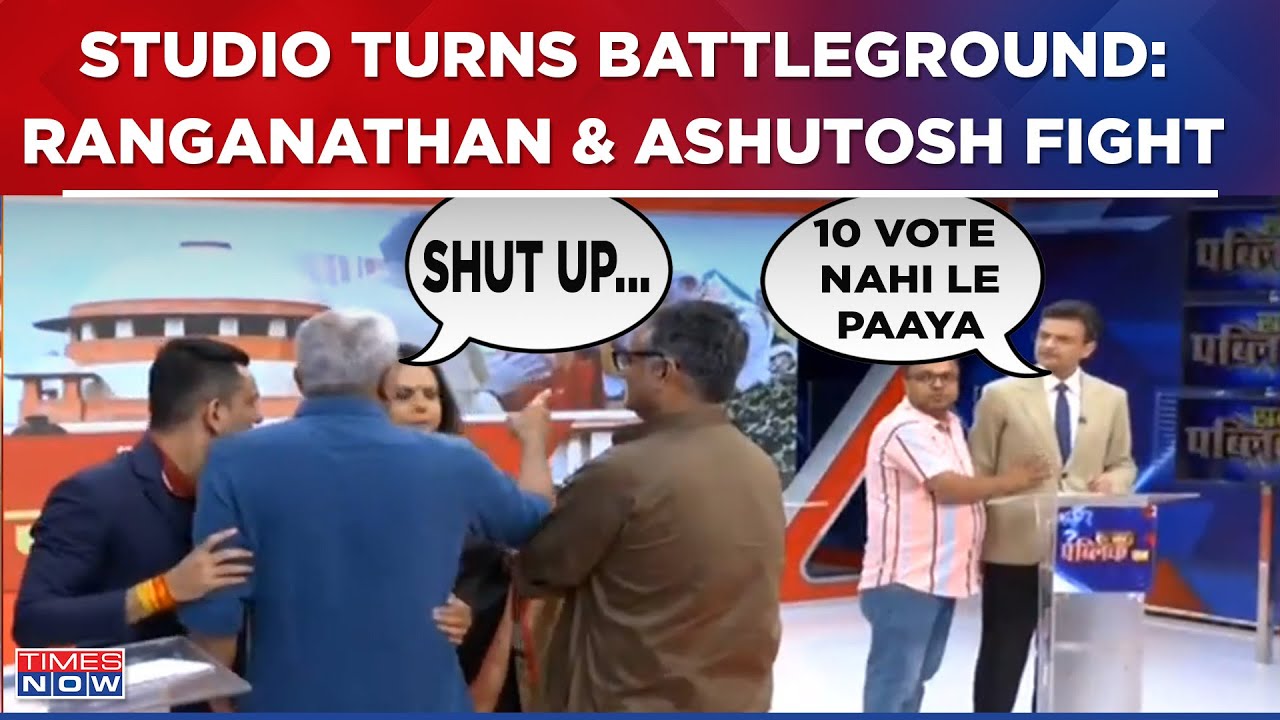
Things took a turn for the worse when Ashutosh, visibly angered by what he perceived as personal attacks and the tone used by Ranganathan, confronted his fellow panelist. As tempers flared, the debate became personal, with both participants raising their voices, and growing increasingly belligerent. The situation deteriorated to the point where anchor Navika Kumar had to step in to de-escalate the argument. Tehseen Poonawalla, another panelist present in the studio, also intervened to prevent the verbal altercation from turning physical.
Times Now Navbharat later released a video clip showing how the altercation began, further fuelling discussions online. The clip quickly gained traction on social media, sparking debates on civility in public discourse and the growing tendency for news debates to descend into sensationalised drama.
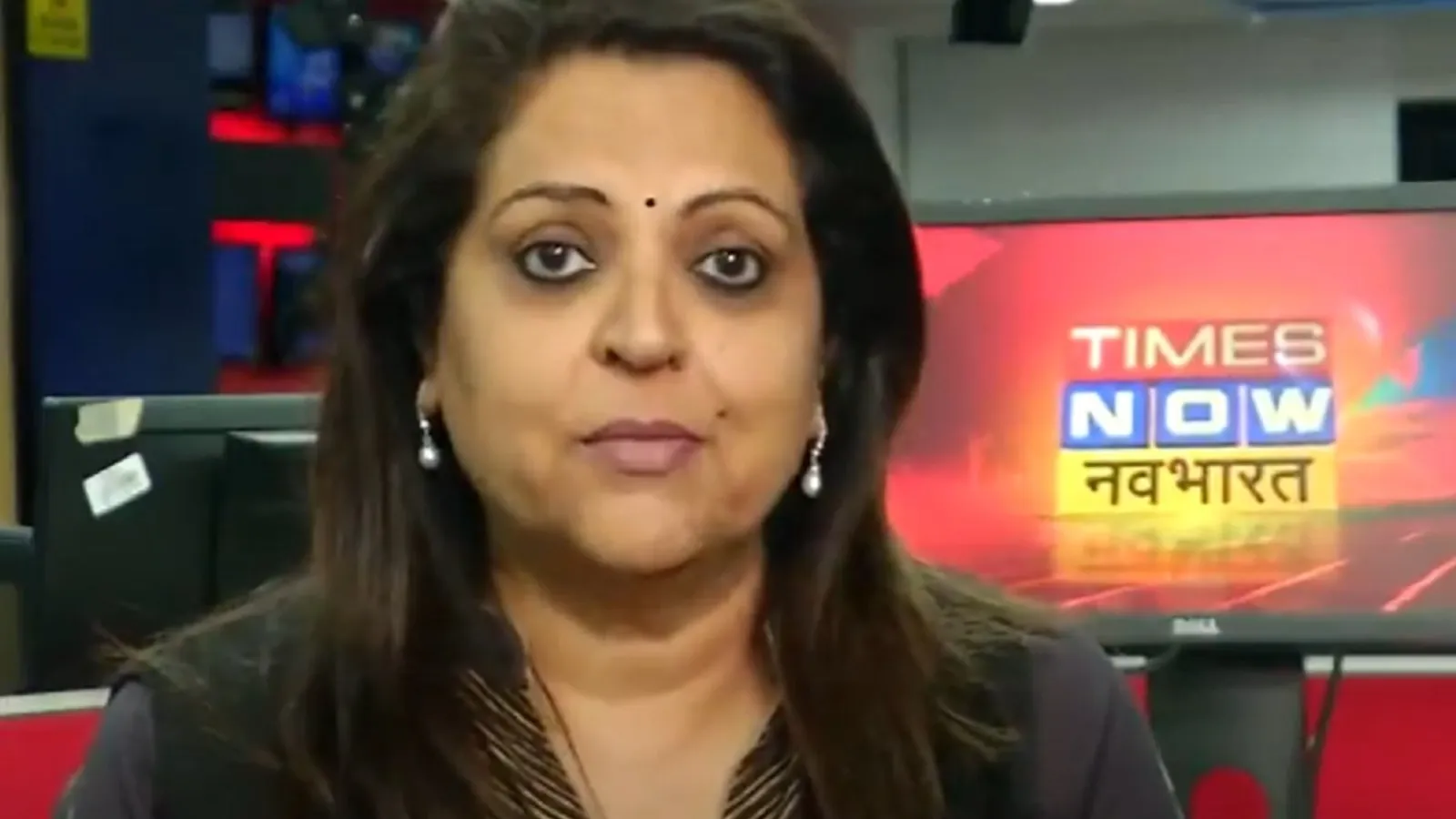
Serial offenders Who Get Away With Very Little Punishment
Over the years, there have been many small and big incidents when these TV channels have been caught, prosecuted and fined for hate news, fake news and trying to create communal disharmony. However, seems like they get away with nothing more than a warning and a nominal fine that makes no difference to them whatsoever. Here are some one the reported incidents in the recent memory.
NBDSA Reprimands Times Now Navbharat Over Communal Content
In March of 2024, a significant move to uphold ethical journalism was taken by the News Broadcasting & Digital Standards Authority (NBDSA), that ordered three TV news channels to remove videos of certain programmes centred on communal issues, citing violations of the Code of Ethics and other broadcasting guidelines. Two of the channels have also been hit with penalties for their infractions.
One notable case involves a programme aired by Times Now Navbharat on May 31, 2023. The NBDSA received a complaint alleging that the broadcast violated key principles of the Code of Ethics & Broadcasting Standards. These included breaches of impartiality, objectivity, neutrality, and accuracy—cornerstones of responsible journalism. The programme was further accused of failing to adhere to guidelines intended to prevent hate speech, as well as ensuring balanced conduct during debates, and avoiding the communal framing of crime, riots, and other sensitive incidents.
This action by the NBDSA highlights the growing concern over the role of certain media outlets in stoking communal tensions and spreading misinformation. As these violations come to light, the regulatory body’s decision sends a strong message: media platforms must adhere to journalistic ethics, especially in a landscape fraught with polarisation.
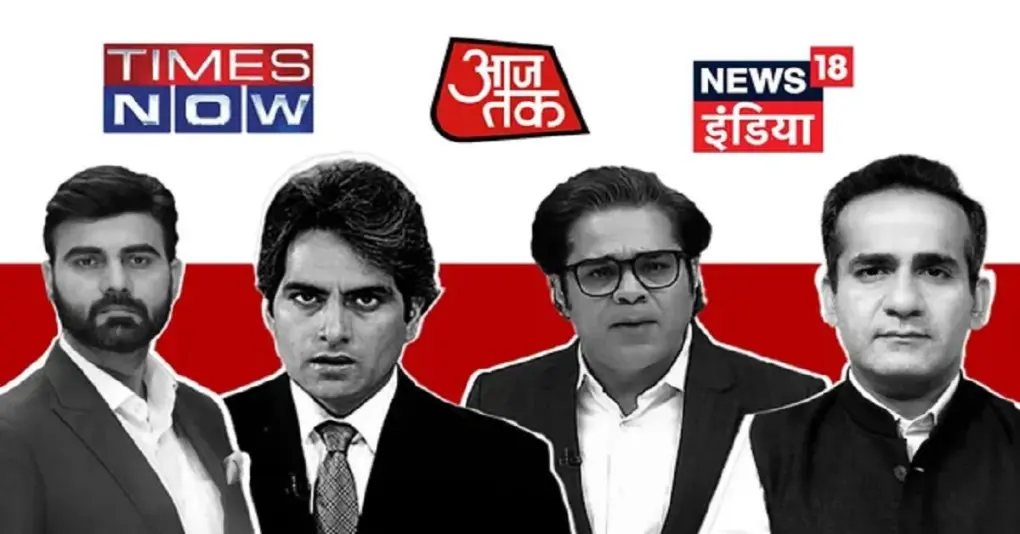
NBDSA Fines News18 India & Times Now Navbharat Over ‘Love Jihad’
The News Broadcasting & Digital Standards Authority (NBDSA) has imposed fines on two major TV news channels for their coverage of the Shraddha Walker murder case, which wrongfully invoked the term "love jihad," a phrase often used to promote communal narratives. The NBDSA found that these broadcasts violated the Code of Ethics by engaging in religious stereotyping and spreading divisive rhetoric.
In the case of Times Now Navbharat, a programme aired on May 31, 2023, discussed the Shraddha Walker murder and made unsubstantiated allegations of "love jihad." After reviewing submissions from both sides, the NBDSA concluded that the anchor had incorrectly cited Shraddha Walker’s case as an example of "love jihad." The authority emphasised that the term should be used with "serious introspection" in future broadcasts, warning that religious stereotyping constitutes a violation of ethical journalism standards. As a result, the NBDSA imposed a fine of ₹1 lakh on the broadcaster and ordered the removal of the video from its website, YouTube, and all associated hyperlinks within seven days.
A second case involved News18 India, which aired four programmes in November 2022 discussing the same murder case and making similar "love jihad" claims. The NBDSA took note of the broadcasts and issued an admonishment, particularly aimed at the anchors for their handling of the discussions. In addition to the reprimand, a fine of ₹50,000 was imposed, and the channel was directed to remove the videos from all online platforms within seven days.
These rulings by the NBDSA highlight the responsibility of news outlets to avoid communal framing in sensitive cases, especially when dealing with matters that could incite division or fuel hate speech. The fines and content removal orders are a stern reminder that ethical journalism must remain free from religious bias and propaganda.
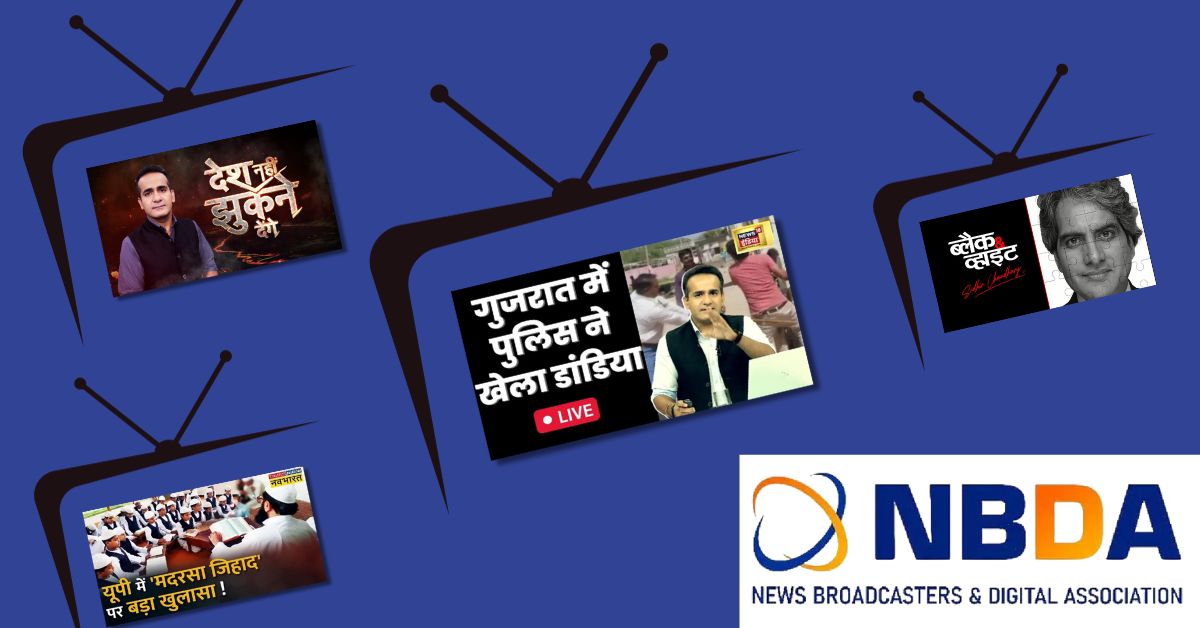
NBDSA Warns Aaj Tak Over Biased Reporting, Orders Removal of Content
In yet another instance of communal bias in news reporting, the News Broadcasting & Digital Standards Authority (NBDSA) has reprimanded Aaj Tak for violating the Code of Ethics in its broadcast of a programme on March 31, 2023. The programme, which covered communal violence in Nalanda, Bihar, attracted complaints that it failed to present an impartial account of the events and unfairly targeted the Muslim community.
The complaint alleged that the anchor omitted crucial details about the violence, including the burning of a mosque and surrounding Muslim-owned shops and homes. Furthermore, it was claimed that the police did not arrive for several hours during the incident and, when they did, reportedly misbehaved with Muslim women and looted homes. Instead of providing a balanced report, the anchor allegedly placed blame solely on Muslims for the violence, ignoring the larger context and the actions of others involved.
After reviewing the broadcast, the NBDSA concluded that the programme breached the Code of Ethics, particularly in its failure to adhere to guidelines on promoting racial and religious harmony. The authority also found that the anchor had violated specific rules prohibiting derogatory statements about individuals or communities during news reporting, analysis, or debates. In response, the NBDSA issued a stern warning to Aaj Tak, instructing the channel to exercise greater caution in future broadcasts. The broadcaster was also ordered to remove the video from all platforms within seven days.
This decision underscores the NBDSA’s ongoing efforts to hold media outlets accountable for biased and inflammatory reporting, particularly on sensitive communal issues. As news channels face increased scrutiny, it is critical that they uphold ethical standards, ensuring balanced and fair coverage.

Rejecting the Rage Machine: Why We Must Demand Better from Our Media
As audiences, we have a critical responsibility to reject the voices that thrive on rage-farming, fake news, and divisive dog-whistling. These toxic narratives, designed to manipulate emotions and incite division, hold power only because we give them our attention. If we collectively stop feeding this frenzy and turn our focus toward platforms that prioritise truth, uphold journalistic ethics, and report facts, we can deprive these harmful voices of their influence.
The cycle of hate and misinformation cannot continue if we, as consumers, demand better. It's time to detox from the hate-laden content that has become all too common, and instead, support news outlets that are committed to transparency, integrity, and a genuine commitment to informing the public.
Image Source: Multiple Agencies
Ⓒ Copyright 2024. All Rights Reserved Powered by Vygr Media.






